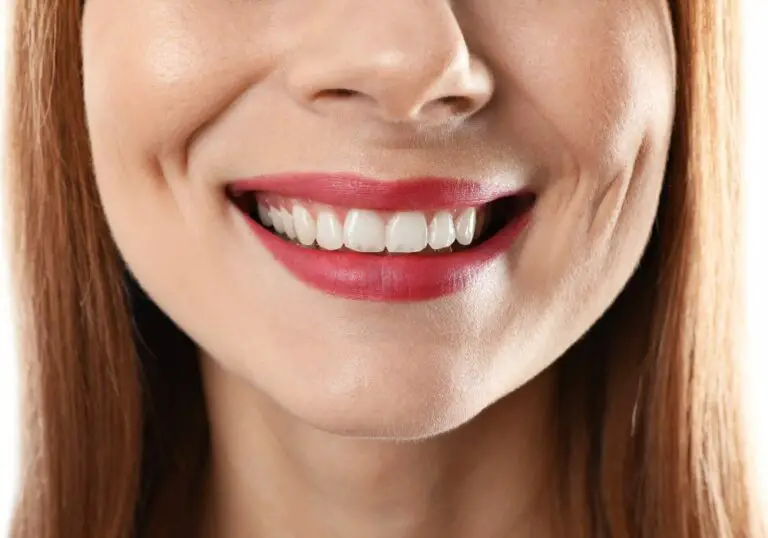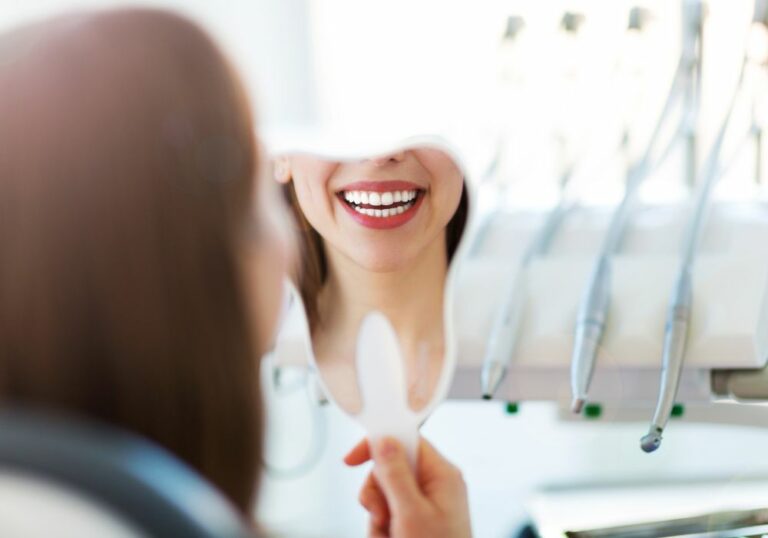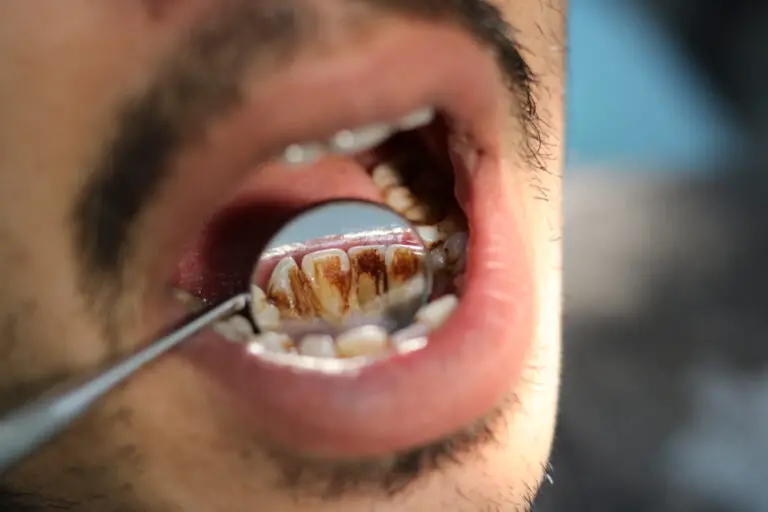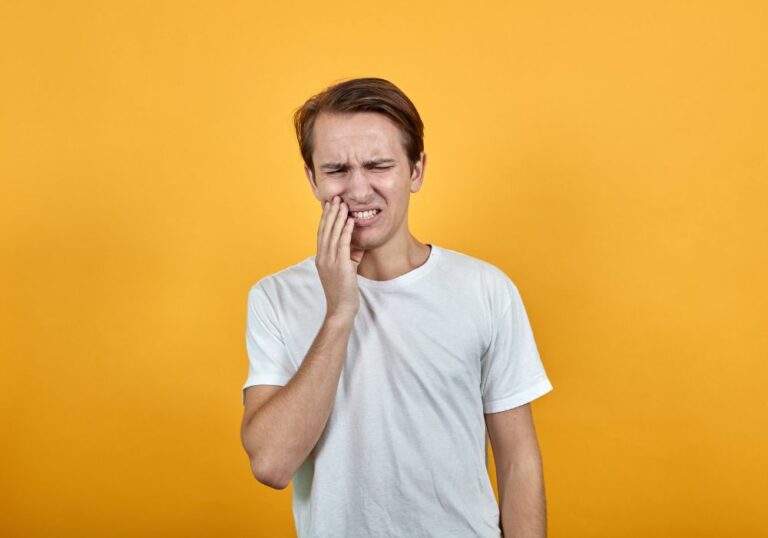Maintaining good oral hygiene through regular brushing and flossing is crucial for whole body health. Removing plaque buildup helps prevent tooth decay, gum disease, and bad breath. But could neglecting oral hygiene also impact the tonsils? This article will take an in-depth look at the potential link between poor dental care and tonsil health. We’ll explore how lack of brushing may contribute to tonsillitis and other problems, examine supporting clinical studies, and provide tips to improve oral hygiene.
Anatomy of the tonsils

Before analyzing how oral hygiene may affect the tonsils, let’s first understand what tonsils are and what purpose they serve in the body.
The tonsils are lumps of tissue located on each side of the back of the throat. There are actually two main types of tonsils:
Palatine tonsils
- The palatine tonsils are the ones most people refer to when they talk about “tonsil health”.
- Palatine tonsils are located on the lateral sides of the throat, positioned between the palate and the tongue.
- These tonsils are oval-shaped and contain deep crevices, called crypts, on their surface.
- The palatine tonsils are encased in a fibrous capsule and anchored to surrounding muscles and tissues.
Lingual tonsils
- Lingual tonsils are located at the very back of the tongue, near the throat opening.
- They are difficult to see without special instruments because they are positioned so far back.
- Lingual tonsils contain grooves rather than crypts on their surface.
- They sit near the base of the tongue, above the epiglottis.
Both palatine and lingual tonsils are made up of similar tissue containing lymphocytes. Lymphocytes are a type of white blood cell that help the body fight infection.
The tonsils work as part of the immune system to stop germs from entering the rest of the respiratory and digestive systems. Here’s how:
- As air and food pass over and around the tonsils, the tonsils trap bacteria and viruses before they can get further into the body.
- Tonsil tissue contains high concentrations of lymphocytes that recognize and destroy foreign invaders like viruses and bacteria.
- The tonsils filter these disease-causing microbes and prevent many of them from penetrating deeper into the throat, sinuses, ears, and chest where they could cause illness.
However, in some cases, the tonsils themselves can become infected with bacteria or viruses they are trying to filter out. This is called tonsillitis.
Tonsillitis causes and symptoms
Tonsillitis occurs when the tonsils become inflamed or infected, often due to viruses or bacteria that get trapped in the tonsil tissue.
Common causes of acute tonsillitis include:
- Streptococcus bacteria, especially Group A strep. This can cause strep throat.
- Adenovirus, influenza, parainfluenza, and other viruses.
- Epstein-Barr virus (mononucleosis).
Chronic or recurrent tonsillitis may be caused by:
- Persistent streptococcus bacteria.
- Chronic adenoid infection.
- Frequent exposure to irritants that inflame the tonsils.
When tonsillitis develops, typical symptoms include:
- Sore, painful throat.
- Painful or difficult swallowing.
- Red, swollen tonsils.
- White or yellow patches or pus on the tonsils.
- Swollen lymph nodes (glands) in the neck.
- Fever, headache, fatigue, muscle aches.
- Bad breath.
Without treatment, strep throat and viral tonsillitis usually resolve on their own within 3-7 days. But recurrent cases of tonsillitis may indicate underlying health issues that require management.
Next we’ll look at how poor dental hygiene could potentially be one contributing factor in recurrent tonsillitis for some patients.
How might lack of brushing contribute to tonsillitis?

Practicing thorough oral hygiene by brushing teeth twice daily and flossing once daily helps rid the mouth of two things that could irritate tonsil tissue:
- Bacterial plaque
- Food debris
When you eat, small food particles get left behind in the mouth, especially between teeth. These food remnants start to decompose, creating an environment favorable to bacteria growth.
Bacteria rapidly multiply, producing a sticky film called plaque that sticks to teeth and tongue surfaces. Without brushing, plaque remains and continues to build up.
But what does this have to do with tonsillitis? Here are three ways that poor oral hygiene may potentially contribute:
1. Allows overgrowth of throat-infecting bacteria
Plaque contains high levels of bacteria, both harmless and potentially harmful kinds. Bacteria associated with plaque accumulation that could lead to throat infections include:
- Streptococcus mutans – causes dental caries but also potentially strep throat infections.
- Porphyromonas gingivalis and Tannerella forsythia – linked to gingivitis and periodontal disease but also recurrent tonsillitis.
- Streptococcus pneumoniae – respiratory pathogen that can be found colonizing oral biofilm and may infect tonsils.
Without regular disruption through brushing and flossing, populations of these bacteria can thrive in plaque unhindered. From the mouth, the bacteria can easily spread to the throat and tonsils, potentially leading to infection and inflammation.
2. Irritates throat and tonsil tissue
In addition to infectious bacteria, plaque also contains irritating substances like:
- Bacterial acids that cause tooth demineralization.
- Endotoxins, cell fragments, and metabolic waste from bacteria.
- Fungal elements from oral candida overgrowth.
These can leach from plaque into saliva and come into contact with the tonsils as saliva passes over them. For some, this may irritate the tonsils and make them more prone to infection. The bacteria themselves can also directly infect and inflame the tonsil tissue.
3. Traps debris against the tonsils
Finally, the plaque matrix can help trap food particles against the tonsils. Rotting food debris may mechanically irritate the tonsil tissue. The debris also allows buildup of substances that can calcify into foul-smelling tonsil stones.
By providing a medium for debris accumulation, plaque may physically disturb the tonsils in a way that lowers their resistance to infection.
Through this trio of mechanisms, poor oral hygiene may potentially contribute to recurrent tonsillitis susceptibility. While not definitively proven, the logic behind the association makes the link scientifically plausible.
Clinical evidence linking oral hygiene and tonsillitis

Does the data from clinical studies and patient observations support a relationship between poor dental hygiene and increased tonsillitis risk? Let’s examine some of the key research:
Adult tonsillitis studies
Several studies demonstrate a correlation between oral hygiene habits and tonsillitis rates in adults:
- A 2020 study in the Journal of Clinical Medicine surveyed 278 patients hospitalized for recurrent tonsillitis. Patients who brushed teeth less than twice daily or never flossed were 3 times more likely to have recurrent tonsillitis than those who brushed twice daily and flossed daily.
- A 2013 study in the Iranian Journal of Otorhinolaryngology examined 100 adults with recurrent tonsillitis. Higher decayed, missing, and filled teeth (DMFT) scores indicating worse oral health were significantly associated with more frequent tonsillitis attacks.
- Researchers in Turkey found similar connections between higher DMFT scores and chronic tonsillitis among 150 patients, according to their 2012 study in the Turkish Journal of Medical Sciences.
Pediatric tonsillitis studies
Research on pediatric recurrent tonsillitis patients also demonstrates a potential link to oral health:
- A 2016 study in the Journal of Family Medicine and Primary Care compared oral hygiene practices in 200 Indian children with and without recurrent tonsillitis. Only 32% of children who brushed once daily had recurrent tonsillitis compared to 58% of those who brushed occasionally.
- However, a 2010 study in the European Archives of Pediatric Dentistry found no significant differences in DMFT scores between 100 children with recurrent tonsillitis and 100 control children. More data is still needed.
Limitations of current studies
Much of the existing research is limited by small sample sizes and other factors:
- The studies show correlation but not definitive causation. Poor oral hygiene may contribute to tonsillitis risk but not be the sole cause.
- Confounding variables like socioeconomic status, access to care, diet, and genetics weren’t fully accounted for.
- The data relies heavily on patient-reported oral hygiene habits, which may be inaccurate.
Despite some limitations, the body of evidence overall does suggest a potential relationship between poor oral care practices and increased tonsillitis susceptibility.
How might poor oral care indirectly impact tonsils?
In addition to the more direct ways lack of brushing may contribute to tonsillitis, poor oral hygiene may also affect tonsil health through secondary mechanisms such as:
Impaired immunity
Chronic gingivitis and periodontitis from inadequate oral care causes systemic inflammation. Research indicates this may lead to decreased immune function.
With a reduced immune response, the tonsils are less able to effectively combat bacteria and viruses they trap. This could indirectly make them more vulnerable to recurrent infections.
Aspiration of oral bacteria into the lungs
When oral hygiene is poor, higher amounts of bacteria from plaque and saliva can be aspirated (inhaled) into the lungs. This may lead to repeated lung infections.
Coughing from lung infections could theoretically spread bacteria and inflammation back to the throat and tonsils. This “reseeding” from lower airways may make tonsillitis recurrence more likely in some cases.
Hormone effects
Advanced periodontal disease is associated with increased estrogen levels in the blood. Some limited evidence suggests elevated estrogen could cause enlargement of palatine tonsils and increase risk for tonsillitis in some individuals.
By contributing to periodontitis, poor oral hygiene may produce hormone effects that could potentially influence palatine tonsil function and vulnerability to infection.
Alteration of oral and throat microbial flora
Medications like tetracycline used to treat severe gum disease can alter the balance of microbes in the mouth and throat. This may allow overgrowth of tonsillitis-causing bacteria in some circumstances.
Through these secondary mechanisms, poor oral health habits may create conditions that disturb the tonsils’ normal bacterial balance and immunity. However, more studies are still needed to confirm these indirect links.
Tonsillectomy and the importance of oral care

For patients who have chronic recurrent tonsillitis that is unresponsive to other treatments, surgically removing the tonsils (tonsillectomy) may be an option.
Tonsillectomy is one of the most common surgeries performed in children. Over 530,000 tonsillectomies are done per year in the United States, according to the American Academy of Otolaryngology.
After tonsils are removed, practicing excellent oral hygiene is more crucial than ever. Here are some reasons why:
Prevent pain and infection
After the tonsils are taken out, the areas left behind are essentially open wounds with exposed throat tissue. Keeping this area clean prevents debris, blood, and saliva from irritating the healing wounds.
Without proper oral care, severe pain, bleeding, and infection in the throat can result. Meticulous hygiene is required for safe recovery.
Reduce bacterial colonization
Since the tonsils are no longer present to trap oral microbes, bacteria and viruses from the mouth and sinuses can more readily access the throat and be aspirated into the lungs.
Careful brushing and flossing helps prevent overgrowth of potentially dangerous bacteria that could penetrate deep into the airways without the tonsils acting as protective barriers.
Minimize halitosis
Following tonsil removal, bad breath is very common as debris collects in the open throat spaces left behind. Thorough oral hygiene is required to frequently clear out this accumulation of microbe-laden material before stench-causing putrefaction can occur.
Doctors and dentists uniformly agree that excellent oral care is mandatory both before and especially after tonsil removal surgery to prevent complications and support healing.
6 ways to improve oral hygiene
How can you put good oral hygiene habits into practice to help avoid tonsillitis or promote post-tonsillectomy healing? Here are 6 effective ways:
1. Brush twice daily
As a minimum, thoroughly brush all surfaces of the teeth first thing in the morning and right before bed. Use proper technique – angle bristles 45 degrees towards the gum line and avoid scrubbing hard.
Electric toothbrushes may remove plaque more effectively for some. Aim for at least 2 minutes of attentive brushing.
2. Floss once daily
Flossing reaches plaque between teeth that brushing missed. Doing it at least once a day helps disrupt plaque before it calcifies into tartar. Carefully floss along the gum line as well.
3. Use antibacterial mouthwash
Mouthwash can reduce bacteria between brushing sessions. Look for ones containing cetylpyridinium chloride or essential oils like thymol to kill more bacteria and microbes.
Swish gently for 30-60 seconds once or twice daily, ideally after brushing.
4. Scrape the tongue
Bacteria, food debris, and dead cells cling to the papillae and crevices on the tongue’s surface. Using a tongue scraper cleans away this hidden bacteria that brushing doesn’t reach.
Aim to gently scrape the entire tongue once or twice daily for fresher breath.
5. Drink water and chew sugar-free gum
Staying hydrated and chewing sugarless gum after eating helps cleanse the mouth, neutralize acids, and prevent dry mouth – all of which help disrupt plaque bacteria.
6. See your dentist regularly
Even diligent at-home care can’t fully remove all plaque and tartar below the gum line. Regular dental cleanings every 6 months allow the dentist to remove calcified calculus that leads to gum disease.
Professional cleanings remove biofilm buildup and help reset the balance of oral bacteria, which may help promote tonsil health.
Making these oral hygiene habits a consistent part of your daily routine can go a long way towards reducing plaque bacteria accumulation and potentially lowering susceptibility to recurrent tonsillitis.
Answers to FAQs about oral health and tonsils
Here are answers to some frequently asked questions patients may have about the relationship between oral hygiene and tonsil health:
Can poor brushing cause tonsil stones?
Yes, insufficient oral hygiene is a contributor to tonsil stone development. Tonsil stones occur when debris like dead cells, mucus, and bacteria become trapped in the tonsil’s crypts and calcify.
Regular brushing and flossing helps prevent the buildup of this debris. Bacteria and inflammation from gum disease may also increase stone risk. Practicing excellent daily oral care helps reduce tonsil stones.
If my child has enlarged tonsils, will brushing more shrink them?
Unfortunately no, brushing alone will not decrease the size of chronically enlarged tonsils. However, improving oral hygiene can help reduce irritation and infection of enlarged tonsils in some cases.
Tonsil enlargement is usually caused by chronic inflammation and/or excessive bacterial or viral exposure. Reducing bacteria through careful brushing may help manage these causes. But enlarged tonsils are also influenced by genetics and other factors.
Can I just use mouthwash instead of brushing?
Never use mouthwash as a substitute for brushing. While mouthwash reduces oral bacteria, it does not disrupt plaque or remove debris from tooth surfaces the way mechanical brushing does. Mouthwash should be used as a helpful supplement but not a replacement for brushing and flossing.
If I get tonsillectomy, do I still need to brush and floss?
Yes, maintaining the same thorough oral hygiene routine is critical after tonsil removal. In fact, carefully brushing and flossing becomes even more important after the tonsils are gone.
With no tonsils to filter bacteria, the teeth and gums become the main defense against oral microbes entering the throat and lungs. Consistent oral hygiene helps block bacterial penetration deeper into the respiratory tract.
Can fixing my oral health alone stop chronic tonsillitis?
For some patients, improving oral hygiene may be enough to significantly decrease instances of chronic tonsillitis. Reducing inflammatory oral bacteria through brushing, flossing, and professional cleanings can remove one source of tonsil irritation.
However, tonsillitis can also be caused by non-oral factors like viruses, allergies, anatomical defects, and autoimmune issues. Consult an ear, nose, and throat specialist to determine the best treatment path based on your specific circumstances.
Conclusion
While more definitive research is still needed, the available evidence suggests that poor oral hygiene habits may increase susceptibility to recurrent tonsillitis in some people.
Allowing plaque-causing bacteria to thrive through insufficient brushing and flossing can provide a thriving reservoir of microbes that may spread to and infect the tonsils. The debris itself could also mechanically irritate the tonsils.
Practicing attentive daily oral hygiene, like brushing properly, flossing, and scraping the tongue, can help control these bacteria and reduce debris accumulation. Regular professional cleanings are also beneficial.
These simple self-care steps may aid in preventing recurrent bouts of tonsillitis in some cases. For those undergoing tonsillectomy, meticulous







